Document Author
Year Published
Topic
- 100% Access to Justice (18) Apply 100% Access to Justice filter
- Reports, Evaluations, Best Practices, Surveys (12) Apply Reports, Evaluations, Best Practices, Surveys filter
- Research (12) Apply Research filter
- Courts (7) Apply Courts filter
- Reports (7) Apply Reports filter
- Forms (6) Apply Forms filter
- Articles & SRLN Briefs (5) Apply Articles & SRLN Briefs filter
- Evaluation (5) Apply Evaluation filter
- Self-Help Centers (5) Apply Self-Help Centers filter
- Strategic Planning (5) Apply Strategic Planning filter
- Trial Court Self-Help (5) Apply Trial Court Self-Help filter
- Allied Professionals (4) Apply Allied Professionals filter
- Simplification (4) Apply Simplification filter
- Ethics Education (3) Apply Ethics Education filter
- Linking a Self-Help Center to Other Services (3) Apply Linking a Self-Help Center to Other Services filter
- Private Bar (3) Apply Private Bar filter
- Technology (3) Apply Technology filter
- Unbundling (3) Apply Unbundling filter
- Automated Forms & E-Filing (2) Apply Automated Forms & E-Filing filter
- Best Practices (2) Apply Best Practices filter
- Best Practices for Self-Help Centers (2) Apply Best Practices for Self-Help Centers filter
- Forms (2) Apply Forms filter
- Impact of Self-Represented Litigant Innovations on Cost and Efficiency (2) Apply Impact of Self-Represented Litigant Innovations on Cost and Efficiency filter
- Judges (2) Apply Judges filter
- Judicial Ethics (2) Apply Judicial Ethics filter
- Law Schools (2) Apply Law Schools filter
- Plain Language (2) Apply Plain Language filter
- Plain Language & LEP (2) Apply Plain Language & LEP filter
- Triage & Service Portal (2) Apply Triage & Service Portal filter
- ATJ Commissions (1) Apply ATJ Commissions filter
- Courses & Trainings (1) Apply Courses & Trainings filter
- Funding (1) Apply Funding filter
- General Non-Profit Resources for Planning and Evaluation (1) Apply General Non-Profit Resources for Planning and Evaluation filter
- Justice for All (1) Apply Justice for All filter
- Justice for All Initiative hosted by the National Center for State Courts (1) Apply Justice for All Initiative hosted by the National Center for State Courts filter
- Justice Tech Entrepreneurs (1) Apply Justice Tech Entrepreneurs filter
- Law Libraries (1) Apply Law Libraries filter
- LEP and Access (1) Apply LEP and Access filter
- Libraries (1) Apply Libraries filter
- Presentations (1) Apply Presentations filter
- Regulatory Concerns (1) Apply Regulatory Concerns filter
- Surveys (1) Apply Surveys filter
- Trainer of the Trainer Materials / Curricula (1) Apply Trainer of the Trainer Materials / Curricula filter
- Triage (1) Apply Triage filter
State
Region
- (-) Remove United States filter United States
Tags
Post date
Search results
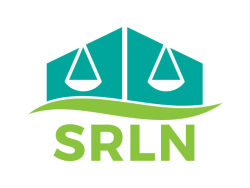
Curriculum: Access to Justice for the Self Represented (SRLN & NCSC 2013)
The following modules are designed to assist judges in handling cases involving self-represented litigants (SRLs). They contain tools and techniques for judges to operate their courtrooms effectively, comply with the law, maintain neutrality, and increase ...
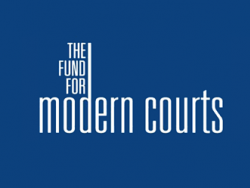
Paper: Court Simplification In New York State: Budgetary Savings And Economic Efficiencies (Modern Courts 2013)
This paper by the Committee for Modern Courts offers an analysis of the impact of simplification and concludes that in addition to the many substantive advantages of court simplification, including making our courts more understandable to the public and i ...
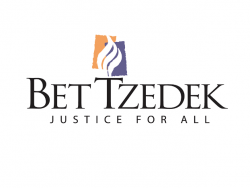
Report: Making Self-Help Work: Bet Tzedek’s Conservatorship Clinic (Bet Tzedek 2013)
Since 2007, Bet Tzedek Legal Services has been running a self-help conservatorship clinic in partnership with the Los Angeles Superior Court. Originally designed to serve 150 self-represented litigants per year, the program served more than 1,400 self-re ...
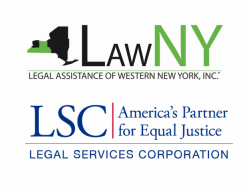
Report: Can Translation Software Help Legal Services Agencies Deliver Legal Information More Effectively in Foreign Languages and Plain English? (Hineline & Hogue 2013)
This report investigates the current and possible uses of translation tools, including fully-automated machine translation and a somewhat different translation technology, translation memory. Translation memory re-uses whole phrases that an expert has pre ...
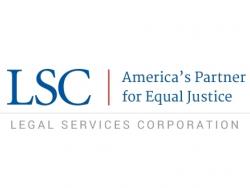
Report: Report of the Summit on the Use of Technology to Expand Access to Justice (LSC 2013)
In 2012 and 2013, the Legal Services Corporation convened a national Technology Summit that brought together more than 75 representatives of legal aid programs, courts, government, and business as well as technology experts, academics, and private practit ...
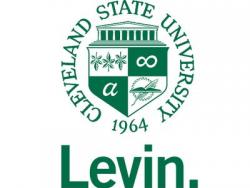
Article: Achieving Meaningful Partnerships with Nonprofit Organizations: A View from the Field (Mendel 2013)
This article addresses a topic of vital importance to the nonprofit sector: the dominant preference of institutional funders for visible partnerships and the reality that most of these are shallow relationships entered into by their participants to obtain ...
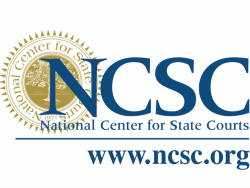
Article: Triage Protocols for Litigant Portals: A Coordinated Strategy Between Courts and Service Providers (Clarke, Zorza, Alteneder 2013)
A project team that included representatives from the courts, the civil legal aid community and the private bar engaged in a joint process to develop standardized and coordinated triage protocols that link litigant services, courts and legal services. Thi ...

Article: Celebrating the “Null” Finding: Evidence-Based Strategies for Improving Access to Legal Services (Charn 2013)
In this artilcle, Jeanne Charn discusses empirical studies that tested whether litigants with access to lawyers fared better than litigants with access only to advice or limited assistance. Two of the three studies produced null findings—the litigants wit ...
Article: Some First Thoughts On Court Simplification: The Key To Civil Access And Justice Transformation (Zorza 2013)
From the Abstract: Given the discrepancy between access to justice needs and the resources that are realistically made available, current incremental approaches are almost bound to fail. The only realistic path to providing 100% of litigants with meaningf ...
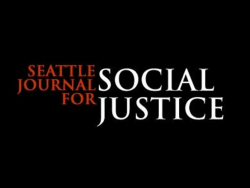
Article: Improving Access to Justice: Plain Language Family Law Court Forms in Washington State (Dyer, Fairbanks, Greiner, Barron, Skreen, Cerrillo-Ramirez, Lee, Hinsee 2013)
From the Abstract: About 65 percent of family law litigants in Washington State come to court without a lawyer. Plain language forms will give many of these pro se litigants the ability to conduct their lawsuits without legal representation or with limite ...